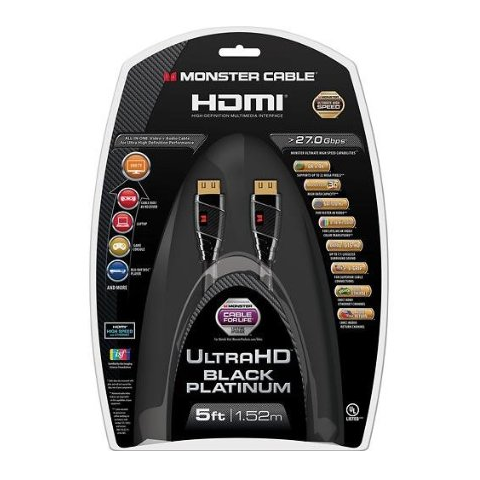Top Class Actions’s website and social media posts use affiliate links. If you make a purchase using such links, we may receive a commission, but it will not result in any additional charges to you. Please review our Affiliate Link Disclosure for more information.

On Jan. 20, U.S. District Judge Edward M. Chen granted Monster’s motion to dismiss fraud claims from the HDMI cable class action lawsuit, finding that plaintiff Benjamin Perez failed to show that he had relied on the alleged misrepresentations on Monster’s HDMI cable packaging.
The judge also dismissed the claims against Best Buy, finding that Perez failed to show how the retailer supports the alleged misrepresentations about the Monster HDMI cables.
According to Judge Chen’s order, Perez will be given a chance to amend the fraud claims against the two companies.
Judge Chen found that Perez had adequately argued who injured him, what the injury was and where the injury happened, which was almost sufficient to satisfy the fraud claims. However, the HDMI cable class action lawsuit did not specifically state that Perez had relied on the statements on the HDMI cable packaging, though he did claim he reviewed the package carefully before making his purchase.
“In the instant case, Mr. Perez does not allege that a representation was made that the cables would meet a certain level of performance but failed to do so,” Judge Chen wrote in the order. “Rather, instead of substandard performance compared to what was advertised, the claim is that the higher quality of cables are not needed as Monster represents.”
As for the warranty claims in the Monster HDMI cable class action lawsuit, Judge Chen found that Perez had adequately argued under California law that he did not receive the superior HDMI cable that the packaging indicated he needed. Therefore, the judge kept the implied warranty claims under federal and state law alive.
Perez filed the Monster HDMI cable class action lawsuit in August 2015, alleging he paid a premium price for the Monster HDMI cable after carefully reviewing the packaging. He alleges that the Monster HDMI cable package indicated that a cable with a bandwidth greater than 10.2 gigabits per second (Gbps) was necessary to transmit video to his television, but he later found out that an HDMI cable with a bandwidth of just 10.2 Gbps is perfectly adequate to transmit all 1080p and 4K signals.
According to the HDMI cable class action lawsuit, Monster charged premiums of more than 1,000 percent in some cases. Perez alleges he paid $189 for the Monster HDMI cable even though he later found out he could have purchased a cable that worked just as well for less than $10.
Perez is represented by L. Timothy Fisher and Julia A. Luster of Bursor & Fisher PA
The Monster HDMI Cable Class Action Lawsuit is Perez v. Monster Inc., et al., Case No. 3:15-cv-03885, in the U.S. District Court for the Northern District of California.
ATTORNEY ADVERTISING
Top Class Actions is a Proud Member of the American Bar Association
LEGAL INFORMATION IS NOT LEGAL ADVICE
Top Class Actions Legal Statement
©2008 – 2024 Top Class Actions® LLC
Various Trademarks held by their respective owners
This website is not intended for viewing or usage by European Union citizens.














